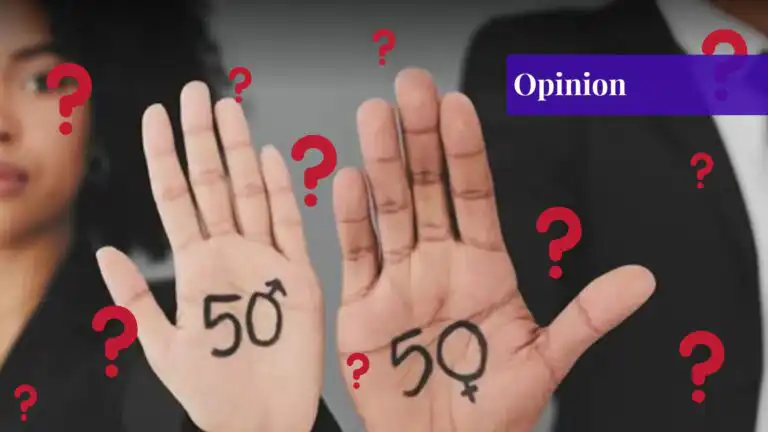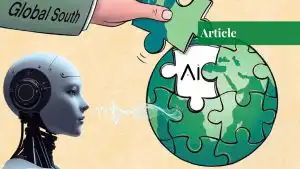The concept of universal equality envisions a world where all individuals enjoy equal rights, inclusion, opportunities, justice, and access to resources. However, this has not been actualized for the following reasons: differences in innate abilities, geographical constraints, limitation of resources, and social systems. Exploring these aspects reveals that it may be impossible to have absolute parity, but equity should be pursued for a more just society.
Why is Universal Equality Unattainable?
Utopia refers to an ideal and perfect society, the existence of social equality while peace and harmony rule the landscapes. It is practically an unachievable state of society, which can only be idealized. In today’s world, the rich continue to amass wealth, the poor face increasing hardship, the powerful consolidate more influence, and marginalized communities experience deepening discrimination. This raises the need for universal equality. But is it really an achievable goal? Let us discuss why seeking universal equality is like chasing utopia.
- Inherent Differences
People’s innate abilities vary greatly, with strengths possessed by one individual often absent in another. From appearance to intellect, humor, and wit—individuals cannot choose what they want for themselves. This underpins universal discrepancies among individuals. In fact, the universe functions on the basis of these inherent differences. According to WHO, 1.3 billion individuals are born each year with disabilities, which makes up almost 16% of the global population. These people have to work significantly harder than those without any disabilities. For them, the necessities of life are unfair yet customary challenges that require immense effort and resilience to overcome. Given such inherent disparities, the notion of achieving universal equality transforms into an unattainable ideal.
One of the core concepts of capitalism is that money begets money. The rich benefit from compounding interests, favorable taxation policies, access to exceptional educational facilities, investment, and educational opportunities. Whereas, the poor can barely meet both ends meet, ending up in a vicious cycle of poverty and debt. The wealth accumulates in the hands of a few and circulation is made stagnant. With the practicality of the capitalistic system, as explained by Karl Marx in his Book, “Das Kapital” (The Capital), where he discusses the exploitative nature of capitalism and the reality of never-ending class struggles—universal equality, which is prone to the competitive economic framework, has become a utopian idea.
- Geographical Constraints
Geography has also been notably inequitable to humankind. While some regions enjoy several seasons, arable lands, turbulent rivers, and miles-long coasts, others face challenges such as barren landscapes, arid conditions, and a lack of rivers and coastlines. The USA holds the largest gold reserves in the world, giving it natural leverage over other states. Moreover, the Middle-eastern region accounts for 31.5% of global oil production and has capitalized on it for decades. These geographical and resource-based disparities highlight the inherent obstacles to achieving universal equality. The uneven distribution of natural assets underscores the fundamental challenge of creating a level playing field globally.
- Gender Variations
Men and women’s varying physical traits have been deciding gender roles accordingly since their inception. Men usually possess a greater muscle mass and type II fiber areas, accounting for their increased strength as compared to women. This makes them perfect fits for the roles in the military, athletics, labor, etc. These innate traits bestowed by nature, form the basis of unequal roles and gender-based disparities. While these traits cannot be changed, it is imperative to eliminate these discrepancies to achieve universal gender equality.
- Resource Limitation
The limitation of material resources hinders the way of equal provision of basic necessities and opportunities, making it difficult to ensure equitable access to goods for all. WHO (World Health Organization) and UNICEF (United Nations International Children’s Emergency Fund) revealed that around 2.2 billion people have no access to clean water. With only 3% of the Earth’s water being fresh, equitably distributing such a scarce and limited resource is impractical. This illustrates that achieving global resource equality is exceptionally challenging.
From the establishment of “Liberty, Fraternity and Equality” in the French Revolution, to the efforts to make a boundary-less state in the form of the USSR, history shows various examples where the efforts to establish complete equality failed and took the lives of many. The French Revolution, which aimed at bringing equality, later led to the “Reign of Terror,” and Napoleon’s tyranny, where he seized absolute power and dictatorship. The unification of several states under the guise of communism, in the form of the USSR, led to economic stagnation, authoritarianism, and finally its dissolution in 1991.
Women’s rights movements, like the Aurat March in Pakistan, trigger patriarchal mindsets, fueling misogyny and increasing gender-based violence. The movements against racial discrimination, e.g. Black Lives Matter, bring in more discrimination than equality by highlighting the racial difference from the white race, inadvertently reinforcing divisions and exclusion.
The Principle of Equality
It may remain impossible to attain universal equality in its own perfect sense but efforts can be made towards achieving equitable status. To address disparities, we can introduce targeted support and additional privileges for marginalized communities to help level the playing field. This concept of encouraging the flow of wealth through avenues like charity, and zakat helps in eliminating the monopoly of the wealthy class from holding large sums of wealth.
Moreover, community tolerance and accommodation of cultural and religious pluralism should be promoted so that different perceptions can be appreciated and incorporated into the core social values. Embracing and learning to live harmoniously in diverse environments can also contribute to a more inclusive and equitable society. While it is impossible to enshrine absolute universal equality, these measures in some way can go a long way in reducing the disparities that exist and make a world a little fairer.
While striving for universal equality, we must recognize that true equality might be a utopian idea owing to inherent disparities, yet practical steps can be taken to reduce the discrepancies. By addressing systemic inequalities through targeted support, wealth redistribution, and embracing diversity, we can create a more just and balanced society.
If you want to submit your articles and/or research papers, please check the Submissions page.
The views and opinions expressed in this article/paper are the author’s own and do not necessarily reflect the editorial position of Paradigm Shift.
She has a bachelors in electrical engineering from GCU, Lahore. She is currently pursuing her MSc in Artificial Intelligence from UET Lahore.





